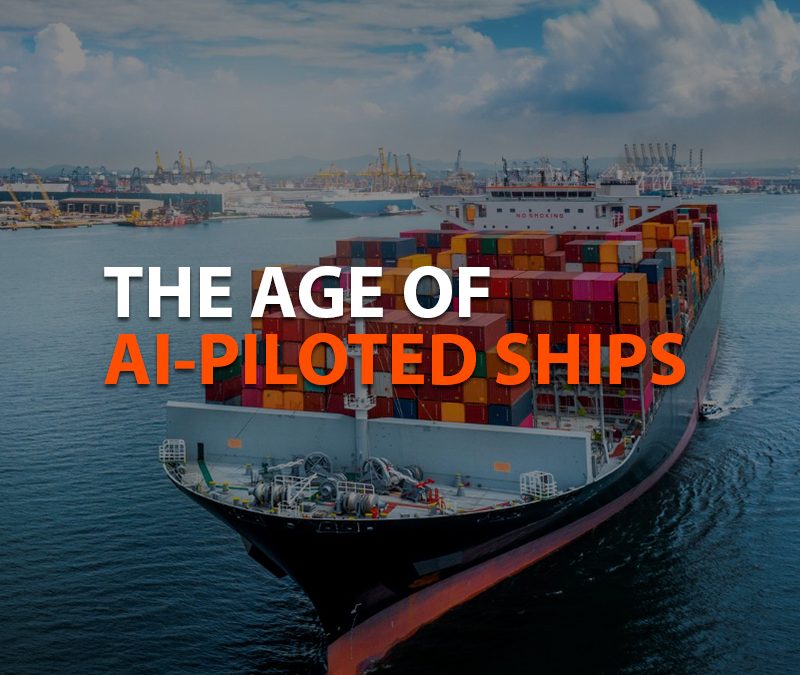In this blog post, we will delve into the world of AI-piloted ships, their implications for navies, and the potential they hold for the future of maritime endeavors.
In recent years, advancements in artificial intelligence (AI) and autonomous technologies have sparked a revolution in the maritime industry. AI-piloted ships have emerged as a game-changer that could transform naval operations and reshape the future of maritime exploration. These cutting-edge vessels are not only set to enhance naval capabilities but also promise safer and more efficient sea transportation.
Benefits of AI-Piloted Ships
The integration of AI-piloted ships into the maritime industry is expected to have a significant impact on the logistics sector, transforming the way goods are transported across the world. Here are some ways AI-piloted ships could affect the logistics sector:
- Increased Efficiency and Speed: AI-piloted ships can operate continuously without the need for crew rest, leading to faster delivery times. These vessels can optimize routes, adapt to changing weather conditions, and navigate more efficiently, reducing transit times and ensuring goods reach their destinations promptly.
- Cost Reduction: With AI-piloted ships offering continuous operations and reduced crew expenses, logistics companies can experience cost savings in transportation. Lower operational costs can potentially be passed on to consumers, making goods more affordable.
- Improved Safety: AI-piloted ships’ sophisticated sensors and algorithms can enhance safety during transportation. Avoiding human errors, these vessels are less prone to accidents and can navigate challenging waters with higher precision, reducing the risk of damage to goods.
- Remote Monitoring and Tracking: AI-piloted ships enable real-time tracking and remote monitoring of cargo. Logistics companies can have better visibility into their shipments, ensuring the security and integrity of goods throughout the entire journey.
- Reducing Carbon Footprint: AI-piloted ships can optimize routes and adopt more fuel-efficient navigation strategies, leading to reduced greenhouse gas emissions. This aligns with the growing demand for sustainable and eco-friendly logistics solutions.
- Improved Supply Chain Planning: The predictability and reliability of AI-piloted ships can aid in better supply chain planning. Logistics companies can optimize inventory management, reduce lead times, and make more informed decisions about shipping schedules.
Risks of AI-Piloted Ships
While AI-piloted ships offer numerous benefits to the logistics sector, they also come with certain risks and challenges that need to be carefully addressed. Here are some of the key risks associated with AI-piloted ships for the logistic sector:
- Cybersecurity Threats: AI-piloted ships heavily rely on interconnected systems and data exchange, making them vulnerable to cyberattacks. Malicious actors could attempt to gain unauthorized access to the ship’s systems, leading to potential disruptions in operations, data breaches, or even complete hijacking of the vessel.
- Technical Malfunctions: Despite advanced algorithms and sensors, AI systems are not immune to technical malfunctions. Hardware failures, software bugs, or unexpected interactions between components can lead to operational issues, which might require human intervention or cause delays in delivery.
- Lack of Human Judgment: AI-piloted ships lack the ability to apply human judgment in complex and unpredictable situations. While they can handle most routine operations, unexpected events or emergencies may require human intervention, which can be challenging in remote locations or during adverse weather conditions.
- Regulatory and Legal Concerns: The deployment of AI-piloted ships raises regulatory and legal questions that require resolution. The existing maritime laws may need to be updated to accommodate autonomous vessels, determining liability and responsibility in case of accidents or incidents involving AI-piloted ships.
- Ethical Dilemmas: Decisions made by AI systems might raise ethical dilemmas, especially in situations where there is a trade-off between human lives and material goods. Determining the right ethical guidelines and ensuring that AI systems follow them becomes crucial in such scenarios.
- Job Displacement: The adoption of AI-piloted ships may lead to job displacement for traditional seafarers and crew members, potentially impacting livelihoods and requiring reskilling or retraining for transitioning to new roles.
- Initial Investment and Integration: The implementation of AI-piloted ships requires substantial upfront investment in technology, training, and infrastructure. Integrating AI systems into existing logistics networks can be complex and time-consuming.
Do you think, with all these pros and cons, that we will see AI piloted Ships in the near future?






